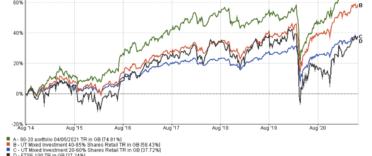With two weeks to go until the UK general election markets are getting twitchy about its potential impact on assets. Two and a half years ago Theresa May called a snap election in an attempt to secure a parliamentary majority. It sounds oddly similar to what Boris Johnson is now doing in 2019. Ultimately Theresa May's decision backfired and resulted in a hung parliament. Ahead of the 2017 election, I pulled together a research article looking at the potential impact of that general election. With the benefit of hindsight, I thought now is an opportune moment to dust down the research and update it. What does history tell us to expect?
Pre-election equity rallyThe table below, adapted from one produced by IG Index, shows how the UK stock market has reacted in the lead up to each general election since 1987.
Year Polling prediction Winning party FTSE 100 gain or drop 1987 Conservative majority Conservative +9.70% 1992 Hung parliament Conservative -4.90% 1997 Labour majority Labour +4.40% 2001 Labour majority Labour +1.40% 2005 Labour majority Labour -0.40% 2010 Hung parliament Conservative coalition -8.15% 2015 Either party could win a majority Conservative -0.10% 2017 Conservative majority Conservative coalition +2.94%Ahead of the 2017 election, I suggested that the FTSE 100 tends to do well in the lead up to a general election if there is a widely expected outcome.
Full article available exclusively to 80-20 Investor members.
To read the complete article, sign up for a free trial or log in below.
Start a free trial Already have an account? Log in



